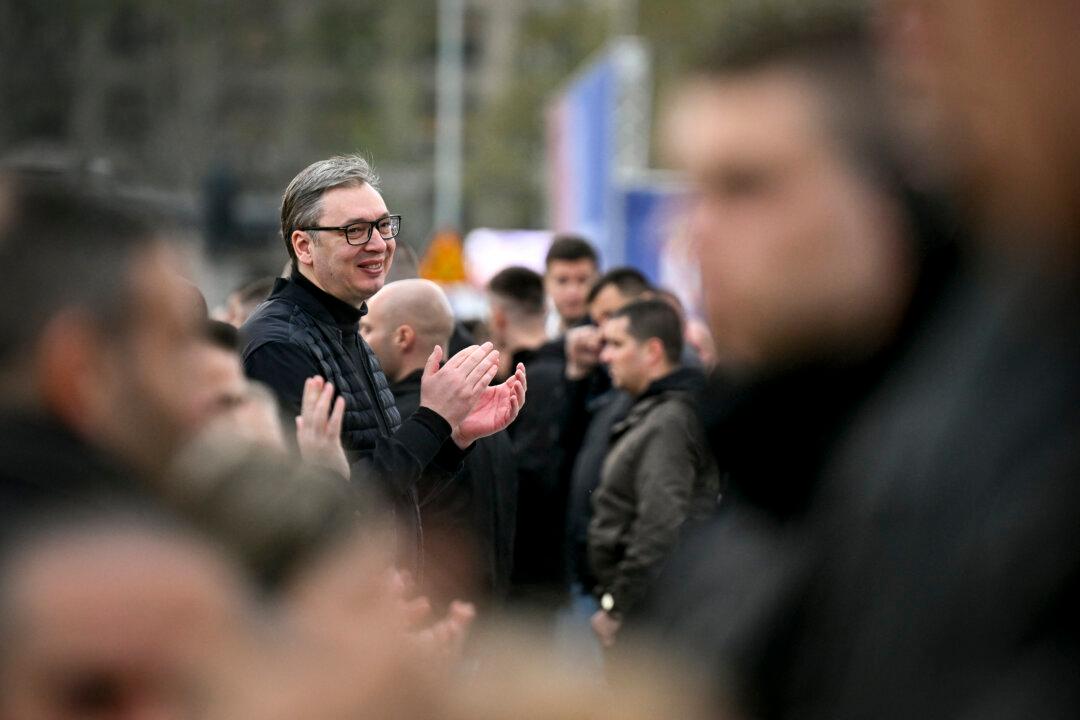Serbian President Aleksandar Vucic on May 13 said that his country remains committed to its plan to join the European Union and wants to speed up its membership bid, after his recent trip to Russia raised eyebrows in Brussels.
Vucic visited Moscow on May 8–9 to attend Russia’s “Victory Day” parade celebrating the 80th anniversary of the end of World War II.





